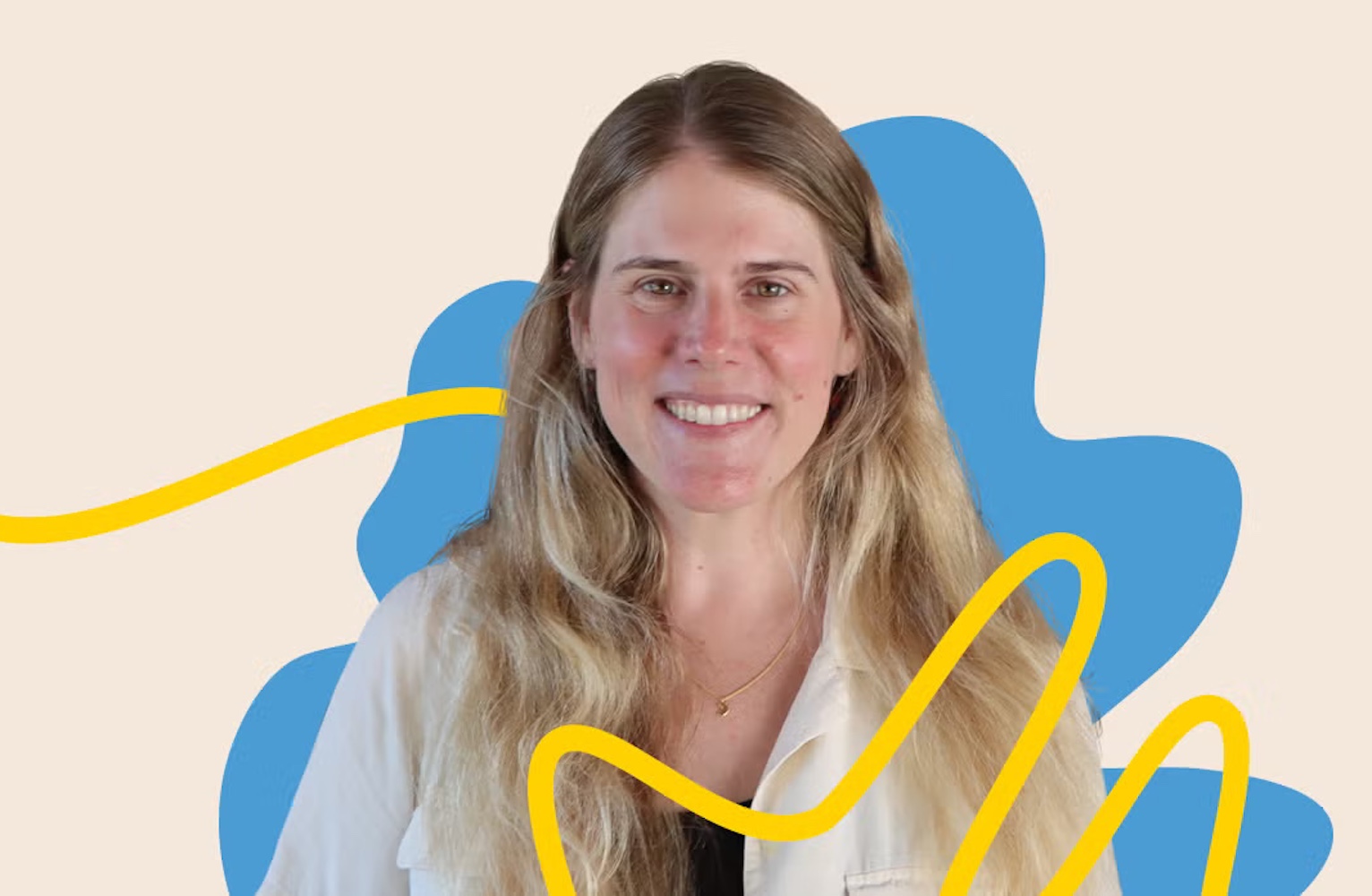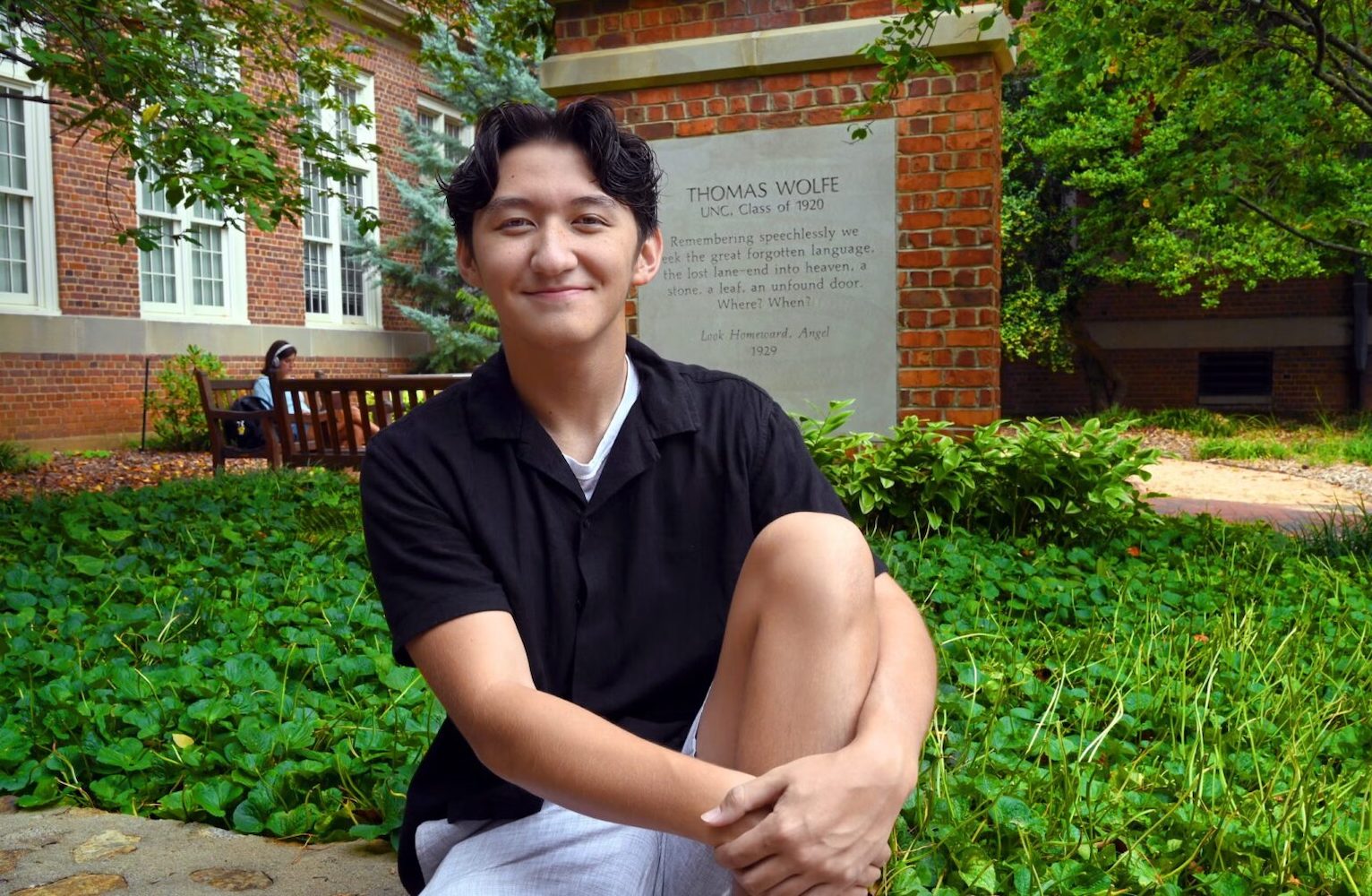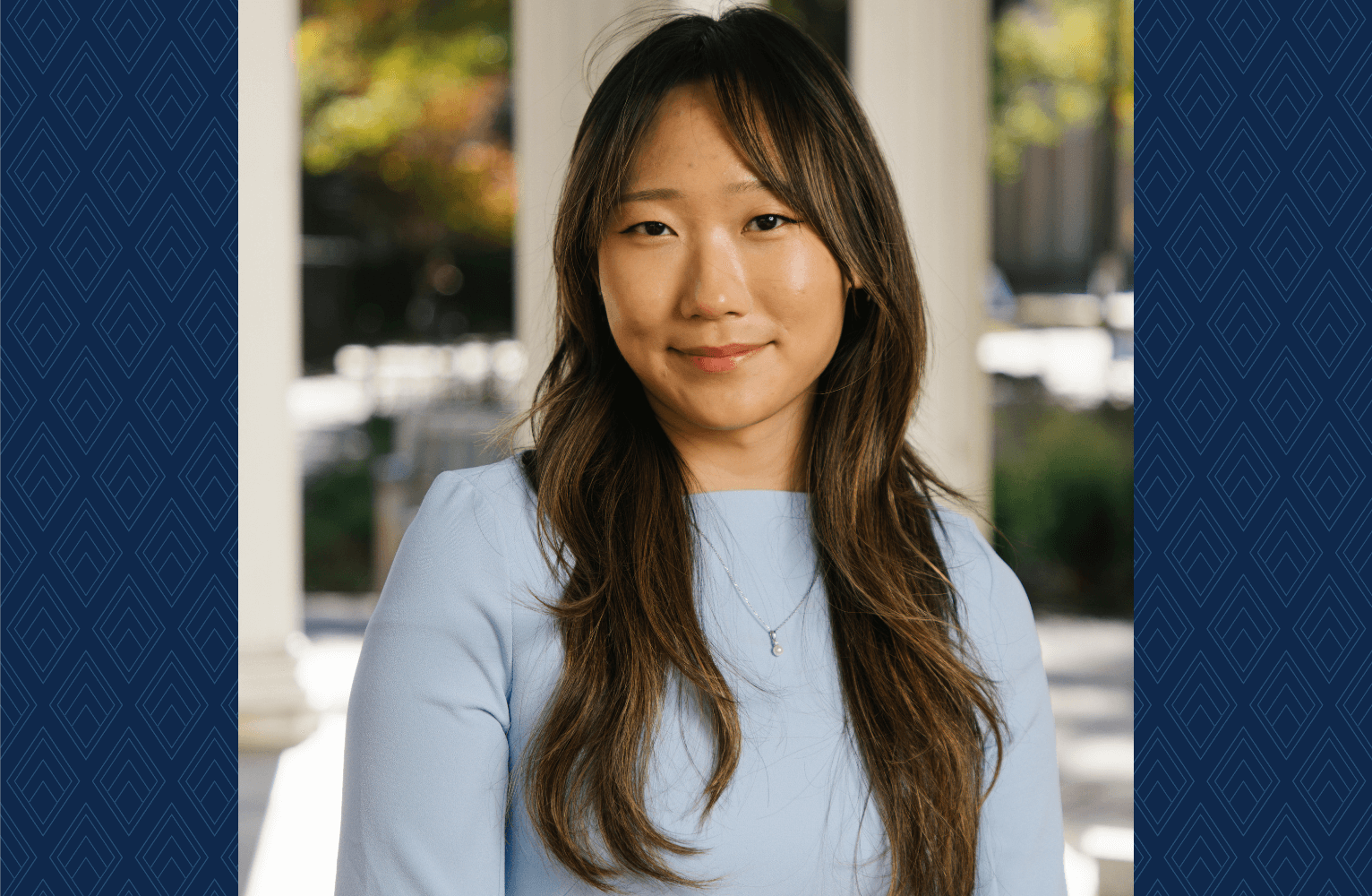
Honors Carolina student stands in front of the Grand National Assembly in Turkey
When Mina Bayraktar ’26 first lived in Turkey during the initial influx of Syrian refugees in 2011, she witnessed this vulnerable population face health care challenges. Now a pre-medicine student in the Honors Carolina program, she returned home through the Burch Fellowship to tell these stories and amplify voices in a new way.
“Being a physician is more than finding diagnoses,” Bayraktar explained. “You have to understand where people are coming from. You have to understand their cultures. You have to understand why they might be resisting a treatment option.”
The Burch Fellowship, established in 1994 by alumnus Lucius E. Burch III, offers up to $7,000 in funding for students to pursue self-designed research proposals abroad. Fellows design endeavors that make a “demonstrable difference” that impact their own lives beyond a traditional class or internship.
Gina Difino, who serves as the director of global education and fellowships at Honors Carolina, oversaw the program. “At Honors Carolina, our tagline is, ‘come here, go anywhere,’” said Difino. “We talk about the Burch Fellowship as the ultimate go anywhere experience.” She added that the program was designed to “fund an experience anywhere in the world that they couldn’t otherwise do at Carolina,” with very few restrictions, creating a uniquely student-focused program that was adaptable to individual visions.
Building Bridges Through Storytelling
Bayraktar’s project was a case study investigating the access of Syrian refugees to the healthcare system in Turkey and their disparities within it. She took a multimedia approach and created podcast episodes documenting her experience, which included interviews and interactions with doctors, patients and NGO workers. The experience spanned multiple cities, beginning in Ankara before moving to Istanbul, with potential travel to southern Turkey, where demographics and infrastructure presented different challenges.
Among her most impactful encounters was meeting with a refugee whose story crystallized the human cost of conflict for Bayraktar. The woman, who emigrated from Iraq, lost her parents and home in the war and was left paralyzed. With no remaining medical infrastructure in her home country, she, along with her siblings, took the journey to Turkey to seek healthcare and the possibility of rebuilding their lives.
“What hit me the most was seeing how much war impacts peoples’ lives on multiple scales. She lost her family and her home, but in her daily life she is unable to do anything physically,” reflected Bayraktar.
The woman, now 23, sought to help refugees from the region who faced similar challenges in overcoming physical and emotional trauma while navigating complex healthcare systems. Bayraktar added, “It’s so inspirational to see just how much a person can do for the betterment of people who are underserved, especially coming from the harshest of circumstances.” The encounter reshaped Bayraktar’s future interviews because it reaffirmed each story was a unique testament to human resilience rather than just a data point.
Bayraktar noted that this work pushed her to pursue professional and personal growth, as this was her first time tackling a project like this.
“Being a STEM major, you don’t get to do a lot of work talking to people, or trying to get them to open up and share their experiences with you,” said Bayraktar. “I’ve also never done a podcast, made engaging scripts or provided information in this format without breaking confidentiality. So there was a lot I was hoping to learn, be it technical or social skills that I don’t get to have in a classroom.”
What distinguished Bayraktar’s proposal, according to Difino, was how she “focused yet creatively chose socially conscious ways to implement her goals.” Difino added that Bayraktar’s plan to return home after studying Arabic at Carolina uniquely enabled her to “tie together populations which are not easy to access.”
A Legacy of Global Impact
The Burch Fellowship’s 30-year history has produced remarkable alumni, including graduates who studied everywhere from the African savannah to the Arctic circle. “The whole goal is to help students reach for something that is exceptional,” Difino explained, highlighting how the fellowship’s open-endedness allowed for extraordinary creativity, innovation and impact.
Bayraktar was able to take her firsthand observations of healthcare issues during the early Syrian refugee crisis and apply them to her current clinical work in Raleigh. Now, working with elderly patients back in Raleigh, she has noticed patterns in how different populations experience similar barriers in facing healthcare access.
“I’ve seen how vulnerable populations deal with the system, in terms of insurance and even having transportation access to come to clinics,” Bayraktar said. “These are factors younger people, who have more resources, don’t have to think about.”
She explained that going back to Turkey to study these overlooked populations illuminated the fine line between their health issues and personal struggles amidst the lingering trauma of displacement.
“I’m hoping that my work can bring more light to their issues, but also the positive things that are happening in their lives,” Bayraktar clarified. “I want to highlight systemic changes that should inspire other countries and governments as well.”
A Personal and Timely Mission
Bayraktar’s fellowship arrived at a pivotal movement. With the recent fall of the Assad government in Syria, refugee populations were facing new uncertainties and possibilities around rebuilding and even potential return. Such a dynamic political landscape added a newfound sense of urgency and complexity to Bayraktar’s documentation work.
“Now, there is a question of if these people can return home. What would that mean? What would that look like?” Bayraktar added, “I think learning more about this population would be very valuable, and I can bring those experiences back to Carolina and share it with other people.”
As the medical field underwent dramatic changes, Bayraktar’s work represented a new generation of dedicated healthcare professionals who understood that effective treatment was contingent upon cultural understanding and systemic awareness. Her work in the field contributed to broader conversations about equitable healthcare access, cultural barriers and the resilience of struggling communities — be it in Turkey or in Chapel Hill.
“Without really knowing the details of someone’s story, you make assumptions,” said Bayraktar. “You don’t know the full picture. So you have to learn more.”
Through the Burch Fellowship’s support, Bayraktar’s work amplified voices often marginalized in policy discussions, creating a lasting record of human experiences during one of the world’s largest refugee crises to influence real change.
Story by Samee Ghaffar ’27
Related Stories




